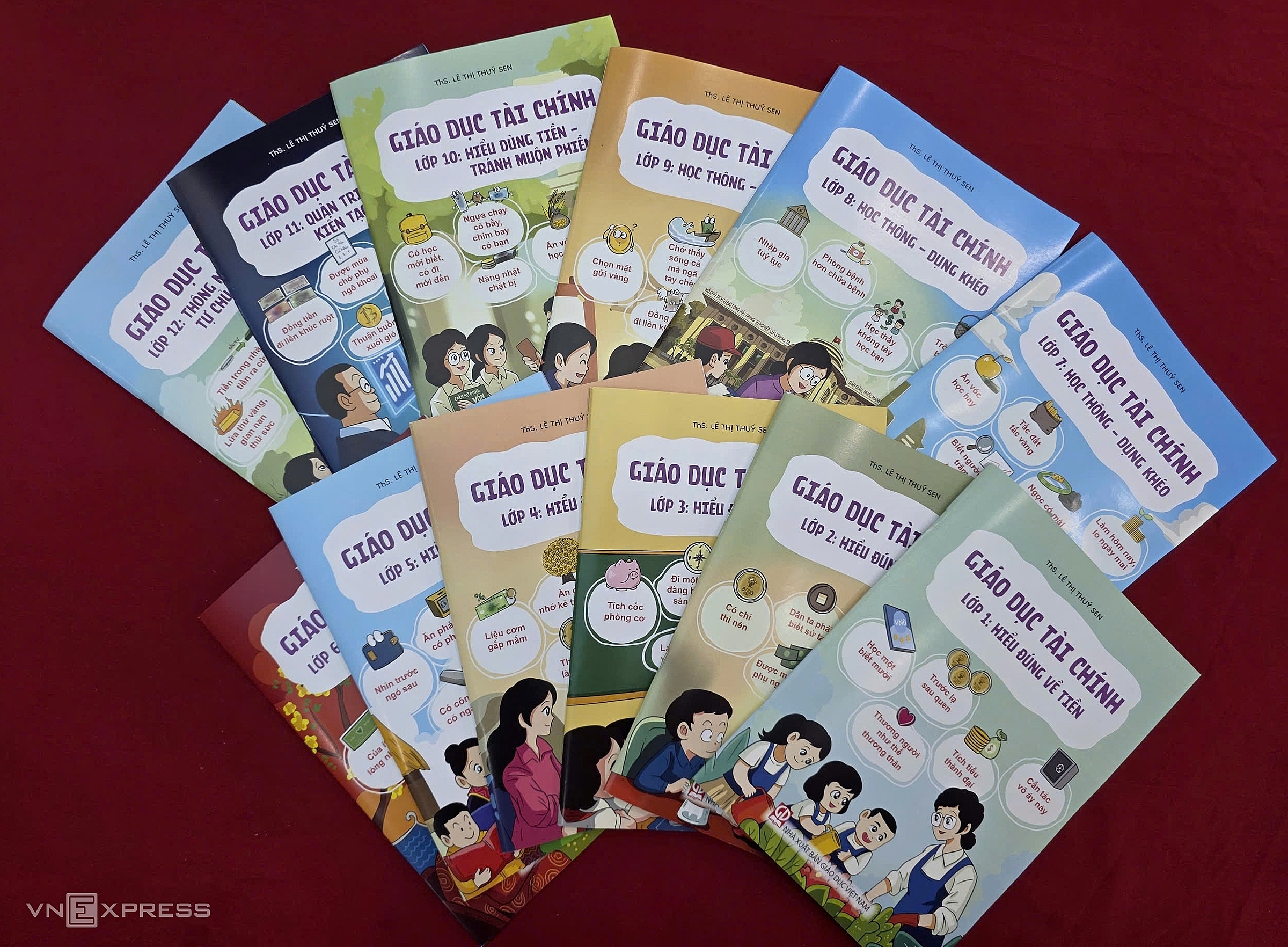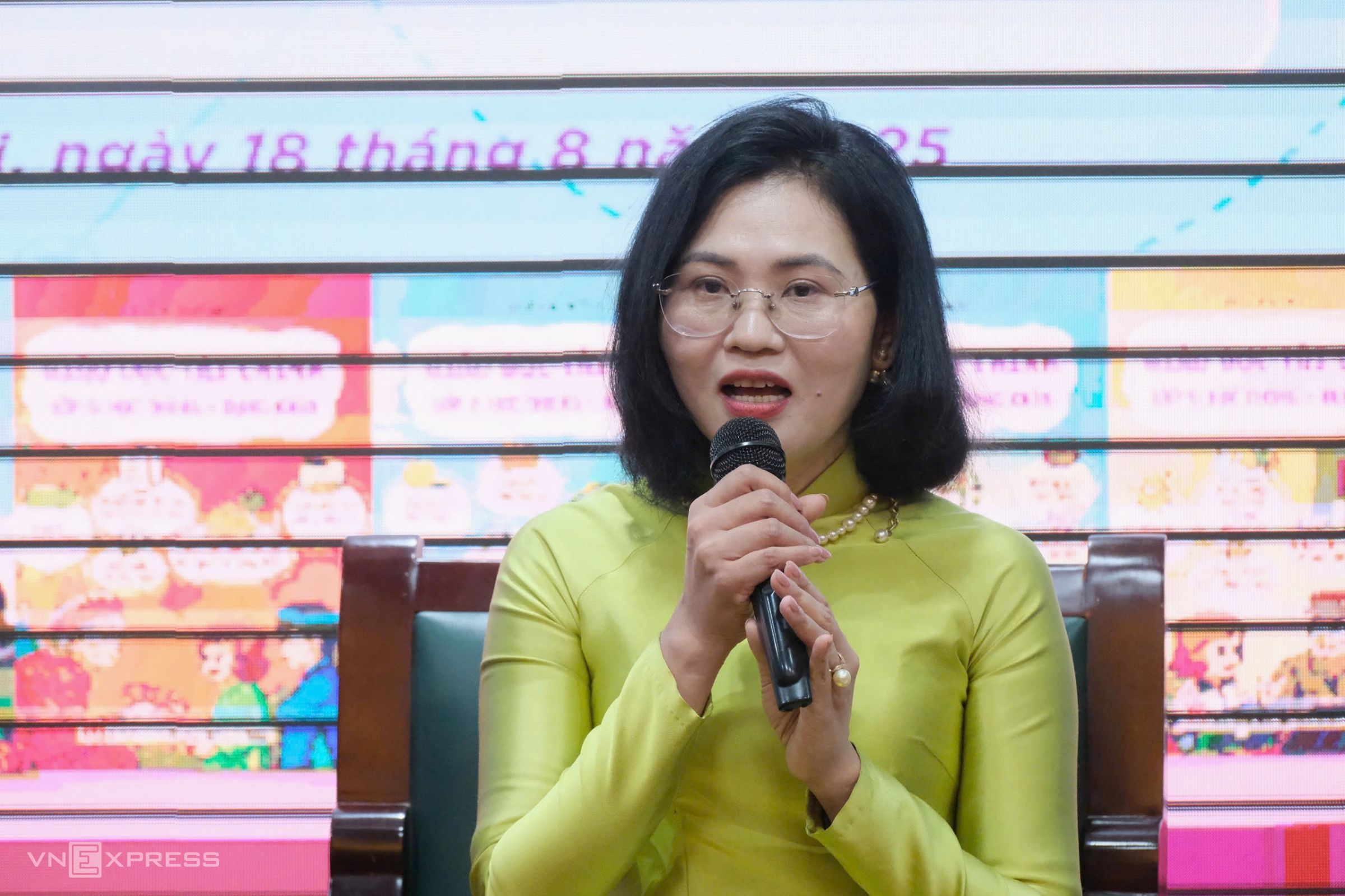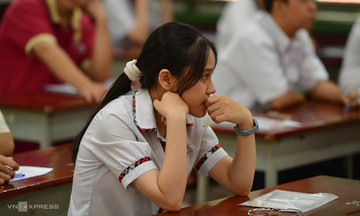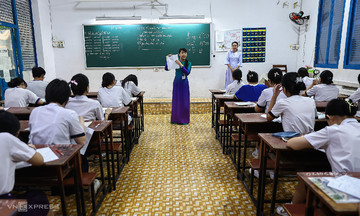The 12-volume series, authored by Le Thi Thuy Sen, Editor-in-Chief of Banking Times, was launched on 18/8. Each book costs between 20,000 and 28,000 VND.
Elementary school students will learn the "true meaning of money" through lessons on Vietnamese currency, money management, and saving. Students in grades 6-9 will explore cultural customs related to money and learn the basics of saving, spending, payments, and investing. High school students will delve into economic factors (exchange rates, credit, interest rates, etc.), investment environments, and investment products such as bonds, stocks, insurance, mutual funds, taxes, gold, entrepreneurship, and the financial and banking system.
"This is the first financial literacy textbook series to cover all grades from 1 to 12," said Tran Quang Vinh, Deputy Editor-in-Chief of the Vietnam Education Publishing House.
According to Vinh, while life skills books for students, primarily focusing on IT, foreign languages, and STEM (Science, Technology, Engineering, and Math), have become increasingly common in recent years, specialized finance books are "almost non-existent," especially a comprehensive series for each grade level.
 |
The Financial Education textbook series. Photo: Thanh Hang |
The Vietnam Education Publishing House believes the Financial Education series is suitable for afternoon programs in schools. Following the Ministry of Education and Training's guidelines, schools conduct core curriculum classes in the morning, while afternoon sessions focus on activities related to culture, arts, STEM, STEAM, reading culture, life skills, digital literacy, artificial intelligence, foreign languages, and sports.
Vinh explained that for a book to be adopted by schools, it must meet various criteria, including educational value, scientific accuracy, and pedagogical suitability.
"This series essentially meets the standards of a textbook," Vinh stated. "The knowledge presented is comprehensive and consistent, without being overly specialized, making it accessible for teachers to instruct and suitable for widespread implementation."
The editorial team plans to release free teaching materials for teachers and parents in the future.
 |
Le Thi Thuy Sen, author of the Financial Education textbook series. Photo: Thanh Hang |
Author Le Thi Thuy Sen shared her motivation for writing the books, expressing her desire to provide comprehensive financial literacy resources for K-12 students, preventing them from lacking knowledge or encountering inaccurate and unstructured information on the subject.
According to a Standard & Poor's survey, only 24% of Vietnamese adults are financially literate, ranking 118th out of 144 countries. Meanwhile, high-tech crime, online scams, and loan sharking are becoming increasingly sophisticated.
Sen highlighted the unique aspect of the series, incorporating Vietnamese proverbs and sayings into the lessons to make them more accessible and memorable for students. For example, the 6th-grade textbook uses proverbs like "eat skillfully to be full, dress warmly to be cozy" and "ants can fill their nest over time" in the lesson on saving, and "small gift, big heart" in the lesson on handling lucky money.
"This book doesn't teach wealth accumulation, but helps students understand finance and manage their finances for a better life," Sen explained.
Thanh Hang












